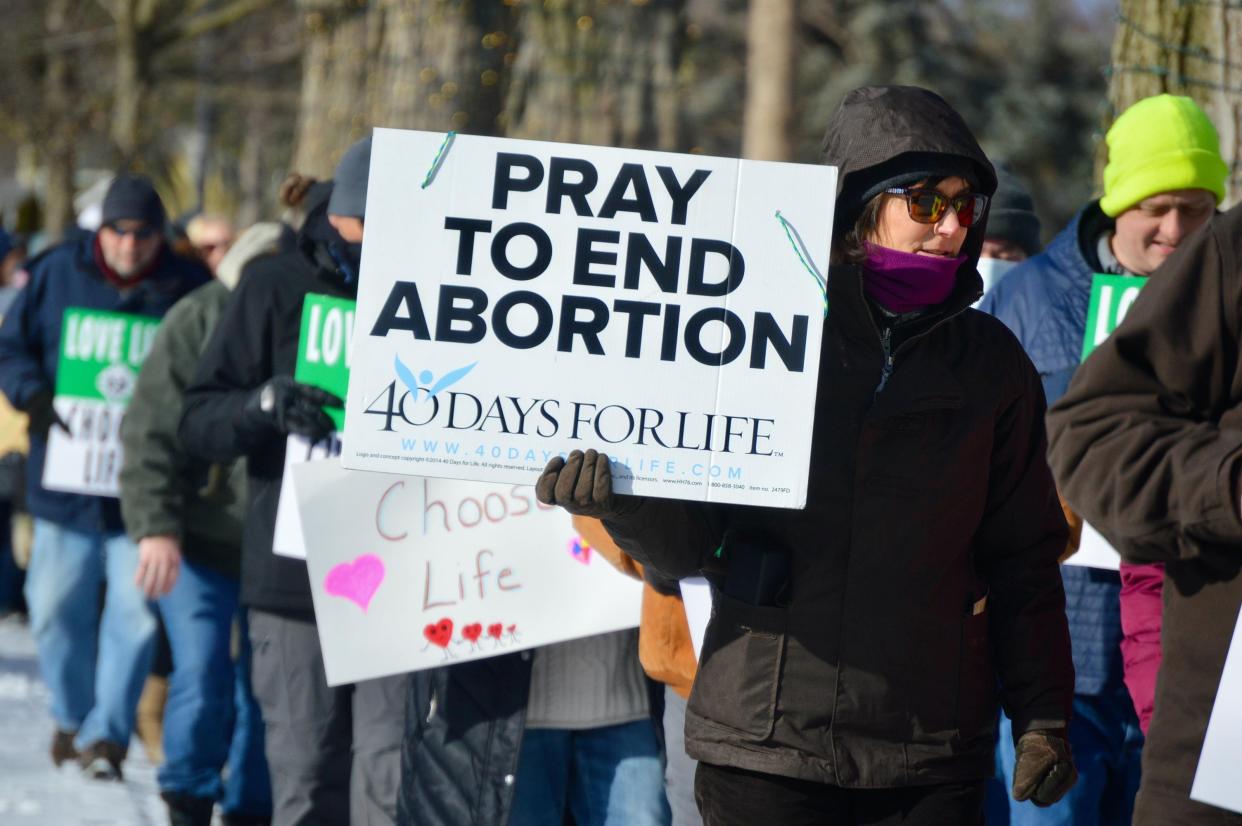My Take: The Bible doesn’t condone abortion

The Supreme Court decided the Dobbs case on legal merit. Even Justice Ruth Bader Ginsburg had called Roe “heavy-handed judicial intervention.” Abortion certainly is a moral issue, but the court’s decision was based on the Constitution, not on the Bible.
In writing a column about abortion, Ray Buursma claimed that the “ramifications” of one verse in the Bible were “staggering” for those who believe abortion should be prohibited. He found that “abortion for an ‘unwanted child’ is not only condoned, it is prescribed.”
More: Ray Buursma: Examining our thinking process
If that were so, the verse really would be “staggering” for Christians who personally oppose abortion based on the Bible. But does the verse he cites really “condone” abortion?

Ray found a ritual deep in the Old Testament. When a man suspected his wife of being unfaithful sexually. (Numbers 5: 11-31) he was to bring her to the priest. In the sacred place of worship, the priest was to take holy water and mix some dust of that holy place into it. The priest would pronounce a curse over the water and the wife was to drink it. If she were innocent, nothing would happen. But if she were guilty, she would become “a curse” among her people, “her abdomen will swell and her thigh waste away.”
On the basis of that one obscure verse, Ray finds “staggering implications.”
Ray wrote, “If, however, the potion aborts the fetus….” Fetus? Where does the verse mention that the accused wife was pregnant? The verse says “her abdomen will swell and her thigh waste away.” Out of over 50 translations of the Bible, only three translate what happens to the woman’s “thigh” (uterus?) as “abortion.” That term is not found in the language the Bible was written in originally. A few translations refer to it as a “fallen uterus.” But that is still not abortion. For 40 years, the NIV translation gave the meaning, “she will have barrenness and a miscarrying womb.” Now recently, without any new evidence, the word “abortion” appears in the translation. Does that really “condone” the stopping of a beating human heart?
The sense of the passage is that the wife was most likely not pregnant. If the accused wife is guilty, “she will become accursed among her people.” That does not refer to abortion. If the test of drinking the water reveals guilt, she will never bear children, a condition viewed by people in the O. T. as a woman being accursed. In contrast, the text goes on to say, “If she is innocent ... she will be able to have children.”
The passage is about (suspected) adultery — not on how a single woman or a couple can get rid of (abort) an “unwanted child.” (A child is “unwanted” only if a person believes life comes solely from sexual activity and not as a divine gift. Psalm 127) Adultery is irreconcilable with the holiness of God and it destroys civil society. The aggrieved husband must take his wife to the priest — not a business designed to get rid of “unwanted babies.”

But even if this passage could “condone” abortion, it is a long leap from a guilty wife being cursed with a spontaneous abortion to ending the lives of 63 million babies. It is not about women deciding what “[they] can or cannot do with their bodies.” The abortion Ray would find here would be the result of God’s verdict of guilt. These verses refer to a highly Spiritual incident. The result of the ritual was God’s response: either the ability to conceive, or barrenness.
The topic is guilt, not convenience. As an indication of her possible guilt, the wife must drink from a clay — not copper or gold — cup. She must bring barley — not pure wheat. She may not add oil, a symbol of the Spirit. She may not add incense, a symbol of prayer. The whole focus is on her possible sin. Would this background have “ramifications” for those seeking abortion?
Disputing over obscure verses in the Bible Book of Numbers might seem weird for Sentinel readers. And I don’t want in any way to show disrespect to Ray. I felt it necessary to write because I believe as a result of his article, there are woman — and men — going about the Holland area now vaguely thinking the Bible somehow “condones” abortion. The Bible doesn’t.
But it does offer forgiveness for those who have had an abortion.
— Ren Broekhuizen can be reached at broren316@gmail.com.
This article originally appeared on The Holland Sentinel: My Take: The Bible doesn’t condone abortion

